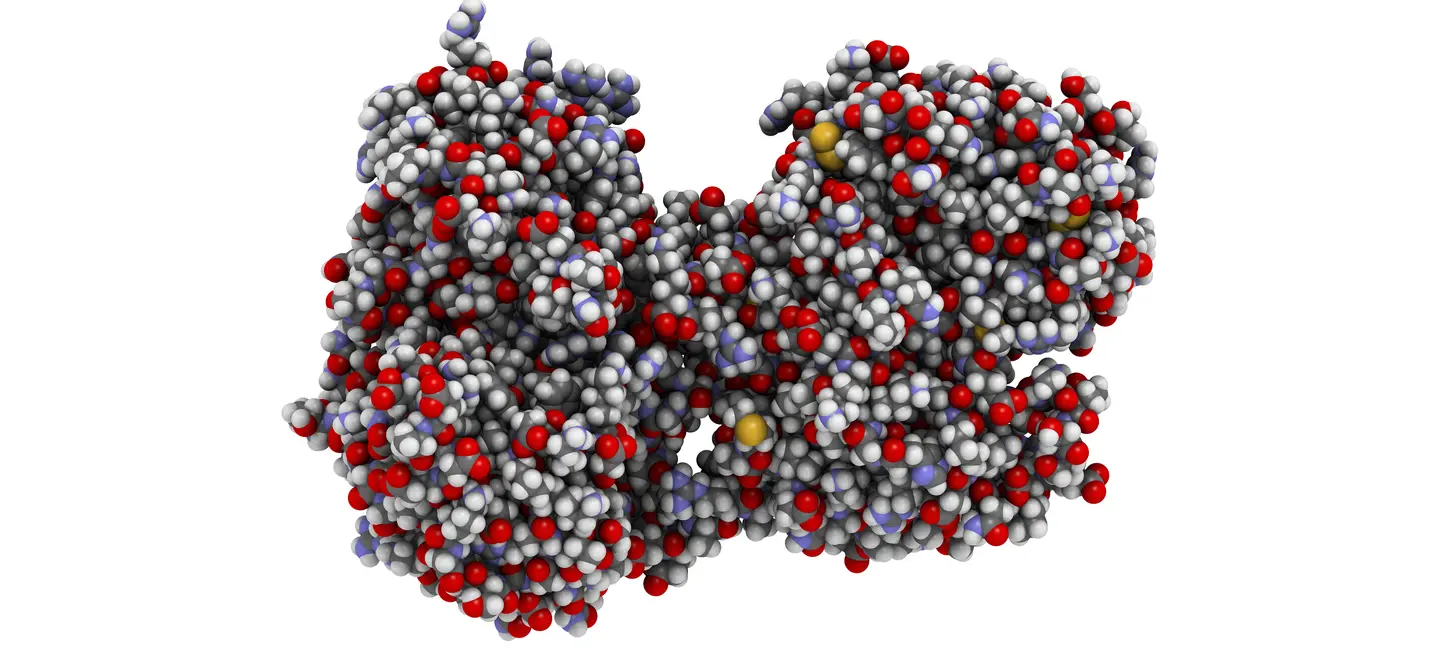
Lactoferrin is a protein in human milk, animal milk, and other bodily fluids. Colostrum, the first milk made after a baby is born, is higher in lactoferrin.
Lactoferrin helps regulate how well iron is absorbed into the body from the intestine. It also seems to protect against infections from bacteria, viruses, and fungi. The lactoferrin in breastmilk is thought to help protect breast-fed infants against infections.
People commonly use lactoferrin for low iron levels during pregnancy and for preventing blood infections (sepsis) in premature infants. It is also used for diarrhea, common cold, and many other conditions, but there is no good scientific evidence to support these other uses.
Is It Effective?
NatMed Pro rates effectiveness based on scientific evidence according to the following scale: Effective, Likely Effective, Possibly Effective, Possibly Ineffective, Likely Ineffective, Ineffective, and Insufficient Evidence to Rate.
- Low iron levels during pregnancy. Taking lactoferrin as a source of iron during pregnancy is about as effective as taking iron supplements by mouth and might be as effective as an iron injection given by a healthcare provider.
- Blood infection (sepsis). Giving lactoferrin by mouth to premature infants might help prevent serious blood infections.
- Death of an unborn or premature baby. Taking lactoferrin does not seem to prevent the death of premature infants.
- A serious intestinal disease in premature infants (necrotizing enterocolitis or NEC). Taking lactoferrin does not seem to prevent premature infants from developing NEC.
There is interest in using lactoferrin for a number of other purposes, but there isn't enough reliable information to say whether it might be helpful.
Is it Safe?
When taken by mouth: Lactoferrin is commonly consumed in foods. Consuming higher amounts of lactoferrin from cow's milk is possibly safe for up to one year. Human lactoferrin that is made from specially processed rice appears to be safe for up to 14 days. Taking doses higher than 7.2 grams daily seems to increase the risk of side effects, such as skin rash, loss of appetite, constipation, diarrhea, and nausea.
When applied to the skin: There isn't enough reliable information to know if lactoferrin is safe. It might cause skin irritation.
When administered into the vagina: There isn't enough reliable information to know if lactoferrin is safe or what the side effects might be.
Special Precautions & Warnings:
Pregnancy: Lactoferrin is commonly consumed in foods. Lactoferrin is possibly safe when taken by mouth in doses of 200 mg daily during pregnancy. There isn't enough reliable information to know if lactoferrin vaginal tablets are safe to use when pregnant. Stay on the safe side and avoid use.
Breast-feeding: Lactoferrin is commonly consumed in foods. But there isn't enough reliable information to know if taking larger amounts used as medicine by mouth or as vaginal tablets are safe when breast-feeding. Stay on the safe side and stick to food amounts.
Children: In infants and young children, lactoferrin is possibly safe when added to formula or other foods, such as yogurt. There isn't enough reliable information to know if lactoferrin is safe to use in children over 6 years old.
It is not known if Lactoferrin interacts with any medicines. Before taking Lactoferrin, talk with your healthcare professional if you take any medications.
There are no known interactions with herbs and supplements.
There are no known interactions with foods.
Lactoferrin has most often been used by adults in doses of 100-400 mg by mouth daily for up to 12 weeks. It's also used in topical and vaginal products. Speak with a healthcare provider to find out what type of product and dose might be best for a specific condition.
Apolactoferrin, Bovine Lactoferrin, Human Lactoferrin, Lactoferrina, Lactoferrine, Lactoferrine Bovine, Lactoferrine Humaine, Lactoferrine Humaine Recombinante, Lactoferrines, Lactoferrins, Recombinant Human Lactoferrin.
Information on this website is for informational use only and is not intended to replace professional medical advice, diagnosis, or treatment. While evidence-based, it is not guaranteed to be error-free and is not intended to meet any particular user’s needs or requirements or to cover all possible uses, safety concerns, interactions, outcomes, or adverse effects. Always check with your doctor or other medical professional before making healthcare decisions (including taking any medication) and do not delay or disregard seeking medical advice or treatment based on any information displayed on this website.
© TRC Healthcare 2024. All rights reserved. Use and/or distribution is permitted only pursuant to a valid license or other permission from TRC Healthcare.
